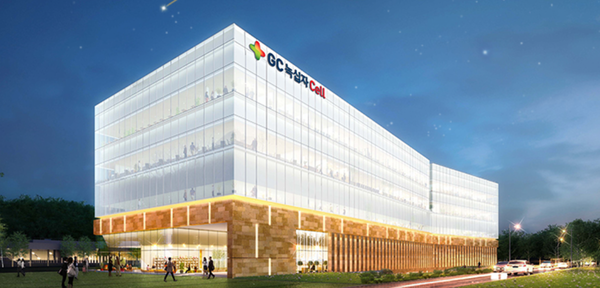GC LabCell will merge GC Cell to diversify portfolios and expand the business to lead the global cell therapy market.
They held board meetings on Friday and decided to merge into one company to significantly enhance global competitiveness by combining different specialized skills in cell therapy, the two companies said.

GC LabCell will be the surviving entity after the merger, but the united company's name would be GC Cell. GC LabCell possesses top-tier technology in natural killer (NK) cell therapy valued at trillions of won by global pharmaceutical companies seeking to use part of its platforms.
The merger between the two companies also reflects significance as GC Cell also has the world's largest cell therapy production through Immuncell-LC, the most sold anticancer cell therapy in Korea.
The global cell therapy field has been expanding by 40 percent annually, emerging as a new promising area in the pharmaceutical market. However, there are few commercialized products in the global market. Still, large pharmaceutical companies have shown their will to enter the market via mergers, which also explains why GL LabCell and GC Cell need to beef up quickly to take the lead, according to the two companies.
When the merger is completed, GC Cell would have a complete research portfolio in cell therapies. The company would secure more than 20 anticancer cell therapy pipelines through the merger, including chimeric antigen receptor (CAR)-NK and CAR-T cells, 40 patents, and 120 researchers.
The integrated company will also speed up licensing out its technologies with global pharmaceutical companies, as shown by the 2 trillion won ($1.75 billion) agreement GC LabCell signed with MSD in January by leveraging its U.S. affiliate Artiva and Novacel.
GC LabCell and GC Cell added that combining their manufacturing capabilities would also form a synergistic effect in branching out into the CDMO business.
The cell therapy market depends on more than 50 percent on outsourcing and shows the most active developments among biopharmaceuticals, increasing demand for CDMO services. According to market research firm Frost and Sullivan, the related market neared $680 million as of 2020, and it is expected to grow more than five times by 2025, reaching up to $3.7 billion.
"The decision is to create synergic effect between the two companies unlike the conventional mergers that generally aims to complement each other," a GC LabCell official said.
The merger is expected to be finalized by November after a corporate merger review by regulators and a general shareholder meeting.

